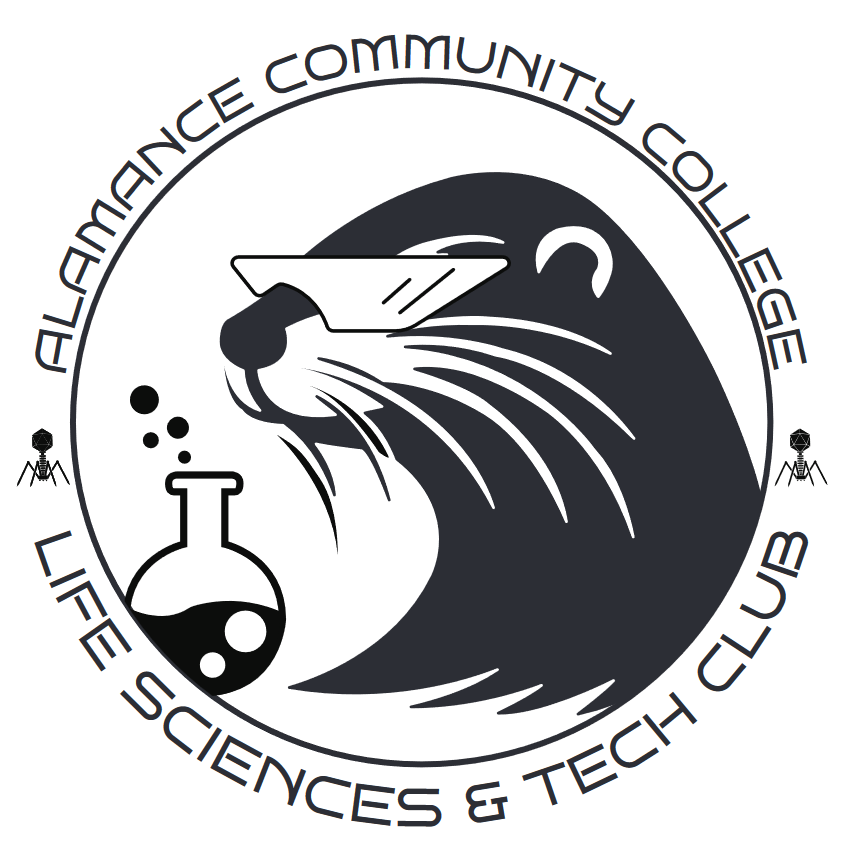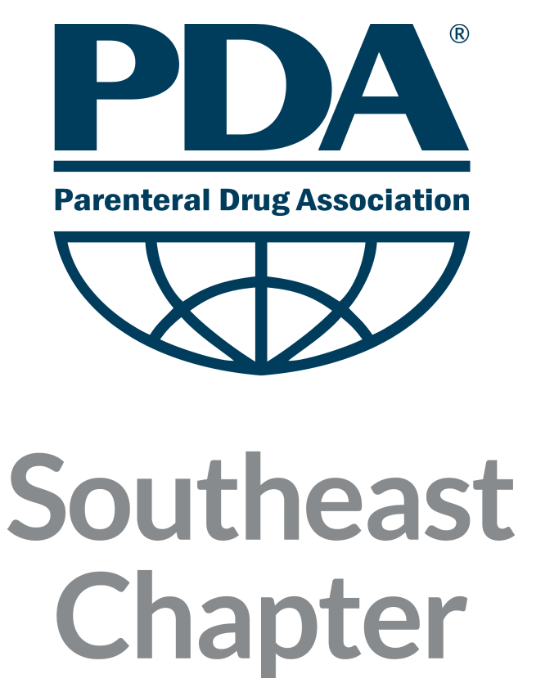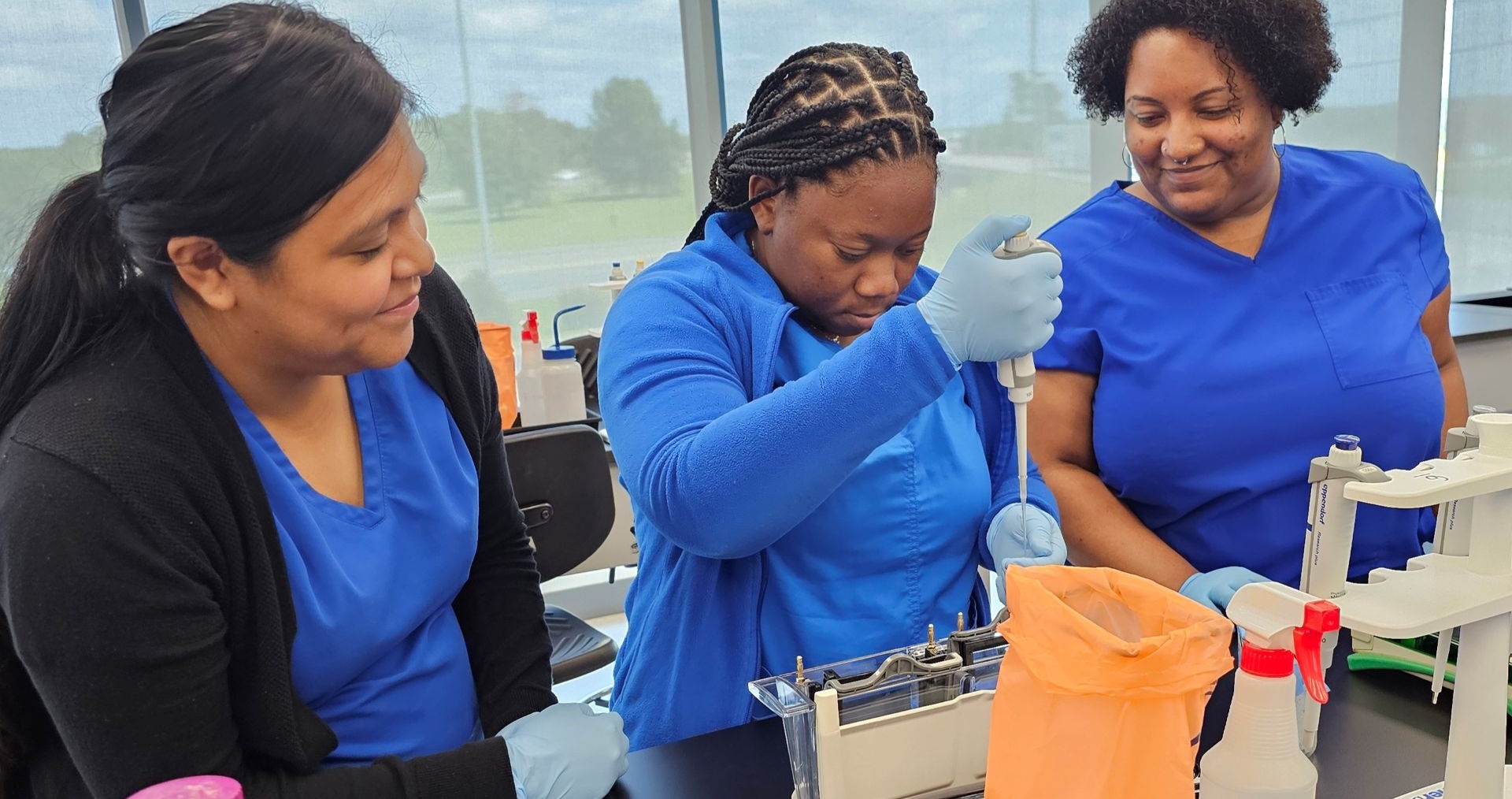Health and Public Services
MEDICAL LABORATORY TECHNOLOGY
ASSOCIATE IN APPLIED SCIENCE
What is an MLT?
The Medical Laboratory Technology curriculum prepares individuals to perform clinical laboratory procedures in chemistry, hematology, microbiology, and immunohematology that are used in the maintenance of health and diagnosis/treatment of disease.
Course work emphasizes mathematical and scientific concepts related to specimen collection, laboratory testing and procedures, quality assessment, and reporting/ recording and interpreting findings involving blood and body fluids.
The ideal student has:
-
A natural aptitude for science
-
The ability to analyze and troubleshoot
-
A detail-oriented mindset
-
An interest in working behind the scenes to help people in a healthcare setting
Medical Laboratory Technology Program Outcomes 11/1/24
| Graduate Employment within Six Months | |
|---|---|
|
2022-2023 |
100% |
|
2023-2024 |
100% |
|
2024-2025 |
100% |
|
2022-2025 Average |
100% |
| ASCP BOC Pass Rate | |
|---|---|
|
2021-2022 |
90% |
|
2022-2023 |
91.7% |
|
2023-2024 |
91.7% |
|
2021-2024 Average |
91.2% |
| Graduation Rate | |
|---|---|
|
2022-2023 |
82.4% |
|
2023-2024 |
100% |
|
2024-2025 |
82.4% |
|
2022-2025 Average |
87% |
Essential Functions and Technical Standards Requirements
Purpose Statement:
The following technical standards represent the essential nonacademic requirements of the Medical Laboratory Technology (MLT) Program that a student must master to successfully participate in the program and become employable. In adopting these standards the MLT Program is mindful of the patient’s right to safe and quality health care by students. The MLT student must be able to apply the knowledge and skills necessary to function in a broad variety of clinical situations while providing the spectrum of medical laboratory interventions. These standards do reflect what may be required for employment of the graduate. To verify the students’ ability to perform these essential functions, students may be required to demonstrate the technical standards/essential functions below.
Meeting these technical standards does not guarantee employment in this field upon
graduation. Ability to meet the program’s technical standards does not guarantee a
student’s eligibility for any licensure, certification exam, or successful completion
of the program.
Technical Standards |
Definition of Standards |
Examples |
| Critical Thinking/Problem-Solving Skills | Ability to measure, calculate, reason, analyze and synthesize, integrate and apply information. |
Read and comprehend relevant information in textbooks and professional literature.
Identify problems related to laboratory results and determine appropriate course of
action. Apply standard precautions. Recognize errors and alter performance as needed.
Problem-solve unexpected observations or outcomes of laboratory procedures. Prioritize
based on the needs of the patient and/or situation. Maintain alertness and concentration
during a normal work period. Determine when to seek supervisory help in a clinical
setting. Actively participate in all classroom and laboratory exercises including
demonstrations, lecture, student laboratory, and clinical practicums. |
| Interpersonal Skills | Ability to collaboratively work with all MLT students and program faculty in the classroom and student lab and with clinical staff and patients in the clinical setting. | Establish rapport with patients/clients and colleagues. Interact appropriately with persons from a variety of social, emotional, cultural and intellectual backgrounds Employ basic conflict management skills. Work independently and with others as directed under time constraints. |
| Communication Skills | Demonstrate effective written and oral communication or alternate method in the primary language of the institution and clinical site. This includes, but is not limited to, reading, following instructions, electronic and other forms of communication. |
|
| Mobility/Motor Skills | Possess manual dexterity and fine motor skills to perform safe and effective clinical laboratory procedures. | Ability to manipulate small objects with fingertips or adaptive devices and use electronic keyboard. Bilateral use of hands or terminal devices that involves coordination and strength. Ability to maneuver in the laboratory, around instruments, in confined spaces, and in patient rooms. Movement includes utilizing shoulders, arms, and neck; bending; twisting the body; standing; reaching and grasping overhead, in front of the body, and down; prolonged standing or sitting. Be able to reach laboratory bench tops and shelves. Be able to access patients in beds or seated in specimen collection chairs. |
| Sensory Abilities | Sufficient sensory ability to function in a clinical laboratory setting. |
|
| Behavioral/Emotional Stability | Demonstrate professional behaviors and strong work ethic. | Demonstrate the ability to work independently maintaining composure and competence under stressful situations. Demonstrate emotional health conducive to application of intellect and sound judgment. Accept constructive criticism & respond by appropriate modifications. Examine and correct personal behavior when it interferes with productive individual or team relationships. Accept responsibility for own actions as an emotionally mature individual. Demonstrate respect for patients and healthcare team members. Present professional appearance. Recognize emergency situations. Demonstrate the ability to follow directions/procedures with accuracy and precision. Practice discretion and confidentiality. |
| Ethical Standards | Demonstrate professional/medical ethics | Demonstrate honesty and integrity. Be willing to admit to mistakes and take responsibility for one’s own actions. Perform in an ethical manner in dealing with peers, faculty, staff, and patients. Adhere to HIPAA regulations. |
Alamance Community College is committed to providing equal educational opportunities for students with documented disabilities. Students who require accessibility services or reasonable accommodations must identify themselves as having a disability and provide current diagnostic documentation to the Accessibility Services Office located in the Main Building, Room 233. All information is confidential.
Please contact the Accessibility Services Coordinator for more information at 336-506-4130 or email at accessibilityservices@alamancecc.edu and notify your course instructor of your special needs, as appropriate. Students should initiate this process as soon as possible (prior to the start of classes and/or field experience).
|
Medical Laboratory Technology Estimated Costs and Fees |
|
|
Student Activity Fee |
$35.00 |
|
Curriculum Instructional Technology Fee |
$27.00 |
|
College Access, Parking & Security (CAPS) Fee |
$18.00 |
|
Student Accident Insurance |
$1.00 |
|
Books |
$800.00 |
|
Criminal background check, drug screen, physical exam, immunizations, titers, TB testing, scrubs, clinical site fees (e.g. parking, on-baording systems, etc.) |
$500.00 |
|
MLT $225 |
|
|
Malpractice Insurance |
$80.00 |
|
Clinical Rotation Time and Record Keeping |
$75-100 |
|
|
|
|
*Does not include cost of tuition. Tuition will vary from semester to semester depending on the number of credit hours taken. |
|
|
|
|
|
Have you applied for Financial aid? Please visit Financial Aid for instructions |
|
The Life Science & Technology Club is a student run club that has an annual membership and elected board. Students are able to get involved with the club when enrolled in a certificate, diploma or AAS program, and are given free membership into the Parenteral Drug Association (PDA). The club is an official PDA Student Chapter, which gives members access to the Global Professionals Network (GPN) an international student network of the PDA, meet and greets with industry professionals, industry tours, mentoring opportunities and outreach events.
 |
 |
Questions? Contact Us.
Jamie Mongillo-Hooker MLS(ASCP)cm
MLT/Histotechnology Interim Department Head
jnmongillo760@alamancecc.edu
(336)506-4196
Why Wait?YOU BELONG HERE |
